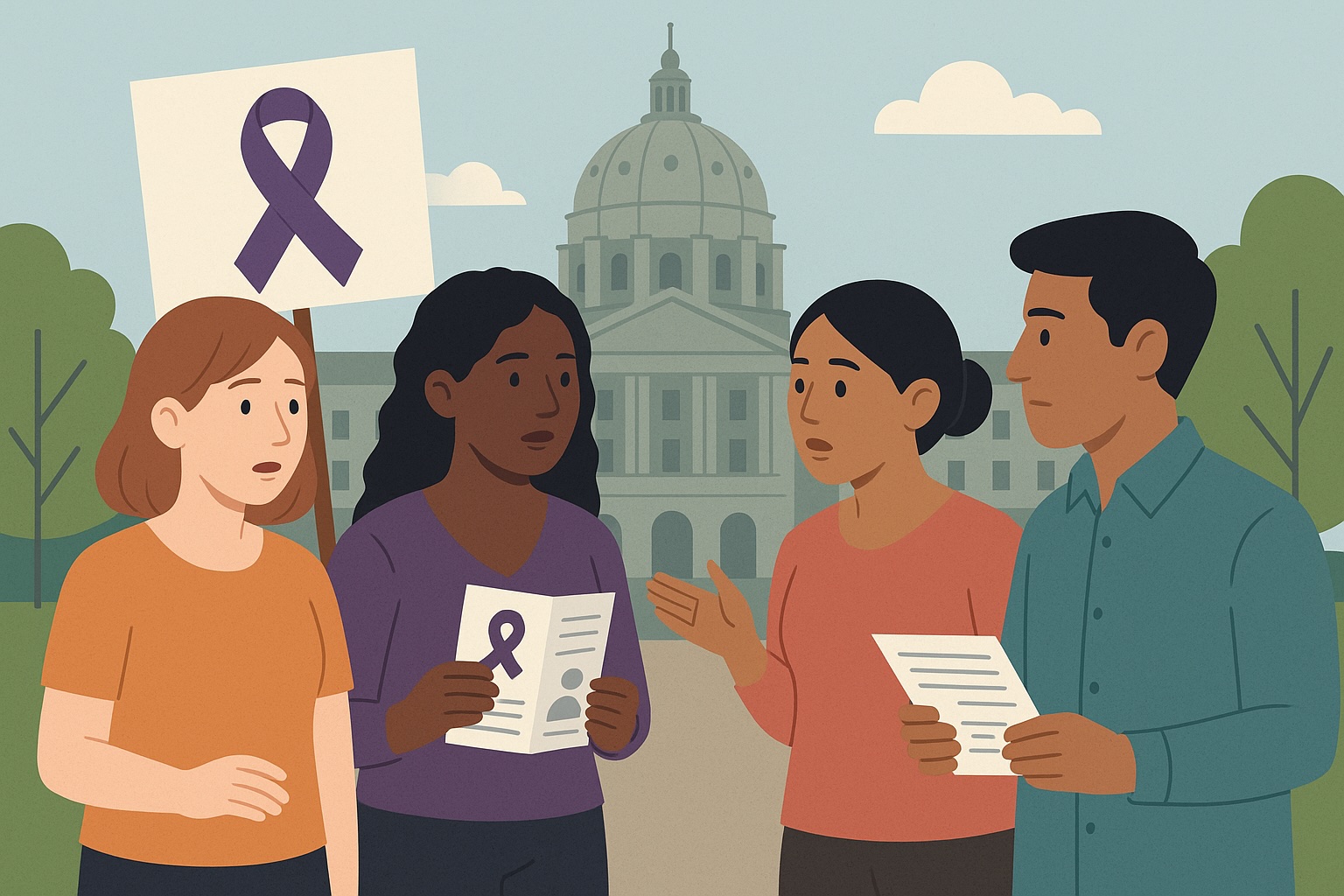📰 Pennsylvania Expands Domestic Violence Awareness with Multilingual Resources
Pennsylvania agencies launched multilingual brochures and videos on domestic abuse, improving accessibility for immigrants, people with disabilities, and non-English speakers.

Domestic violence impacts people from all walks of life, but access to safety and justice is not always equal. Immigrants, non-English speakers, and people with disabilities often face significant barriers in finding help.
Recognizing this gap, the Pennsylvania Office of Domestic Violence Strategies (ODVS), in partnership with the Office of Immigrant Affairs (OIA), Office of People with Disabilities (OPD), Office of Developmental Programs (ODP), ASERT, and the Pennsylvania Coalition Against Domestic Violence (PCADV), launched a groundbreaking initiative: the release of multilingual brochures and videos designed to make domestic violence information clear, accessible, and survivor-centered.
This effort underscores the state’s commitment to inclusivity, equity, and safety for all survivors, regardless of language or ability.
Why Multilingual Resources Are Essential
Language Access = Safety Access
Survivors who do not speak English fluently often avoid seeking help due to fear of misunderstanding, discrimination, or legal repercussions.
Language barriers prevent many from calling hotlines, filing for Protection From Abuse (PFA) orders, or accessing counseling.
Barriers Faced by Vulnerable Communities
Immigrants: Fear of deportation or immigration status being exposed.
Non-English Speakers: Lack of translated materials in shelters or police departments.
People with Disabilities: Limited accessible resources tailored to their needs.
Without equitable access to information, survivors remain isolated — trapped not just by their abusers, but by systems they cannot navigate.
What Was Released
The initiative produced brochures and informational videos in multiple languages and accessible formats.
Languages Covered: Spanish, Mandarin, Arabic, Vietnamese, Russian, and more.
Accessible Formats: Videos with closed captioning, simplified language, and materials designed for people with developmental and intellectual disabilities.
Content Highlights:
Definitions of domestic violence and warning signs.
Survivor rights under Pennsylvania law.
Steps to file a protective order.
Hotline numbers and shelter resources.
Guidance on supporting friends or family experiencing abuse.
By standardizing this information across languages, Pennsylvania ensures that no survivor is left behind.
Community Impact
The release of these materials is expected to:
Expand Awareness: Ensure immigrant and disability communities know abuse is a crime, not a private issue.
Reduce Stigma: Normalizing conversations around domestic violence across cultural communities.
Empower Survivors: Provide knowledge that leads to action — whether that’s calling a hotline or filing a PFA.
Strengthen Partnerships: Community organizations now have ready-to-use tools for outreach in multiple languages.
A Collaborative Approach
This initiative demonstrates the power of cross-agency collaboration:
ODVS coordinated strategy and content.
OIA ensured immigrant communities were represented.
OPD & ODP addressed accessibility needs for people with disabilities.
ASERT provided expertise in developmental disability support.
PCADV contributed frontline survivor advocacy knowledge.
Together, these agencies created resources that reflect the lived realities of survivors across Pennsylvania.
Why This Matters for SEO & Awareness
There’s high search demand around terms like:
“domestic violence resources in Spanish Pennsylvania”
“protection from abuse order help for immigrants”
“accessible DV resources for disabled survivors”.
By publishing detailed, inclusive articles, websites can:
Capture search traffic from underserved communities.
Build authority as a trusted source for survivor resources.
Improve time-on-page with content that is both informative and empathetic.
Conclusion
The release of multilingual domestic violence resources is more than a campaign — it’s a lifeline for survivors who have long been underserved. By investing in accessibility, Pennsylvania is sending a clear message: every survivor matters, every voice deserves to be heard, and every barrier must be removed.
For immigrant families, non-English speakers, and people with disabilities, these brochures and videos represent hope, empowerment, and a pathway to safety.
FAQs
1. What was released?
Multilingual brochures and videos on domestic violence, covering warning signs, rights, and survivor resources.
2. Who developed them?
ODVS, OIA, OPD, ODP, ASERT, and PCADV.
3. Why is this important?
Because immigrants, non-English speakers, and people with disabilities often lack access to clear survivor resources.
4. Where are they available?
Online via government and advocacy websites, and through partner organizations across Pennsylvania.
5. What’s the impact goal?
To empower underserved populations with survivor-centered information and reduce barriers to seeking help.
